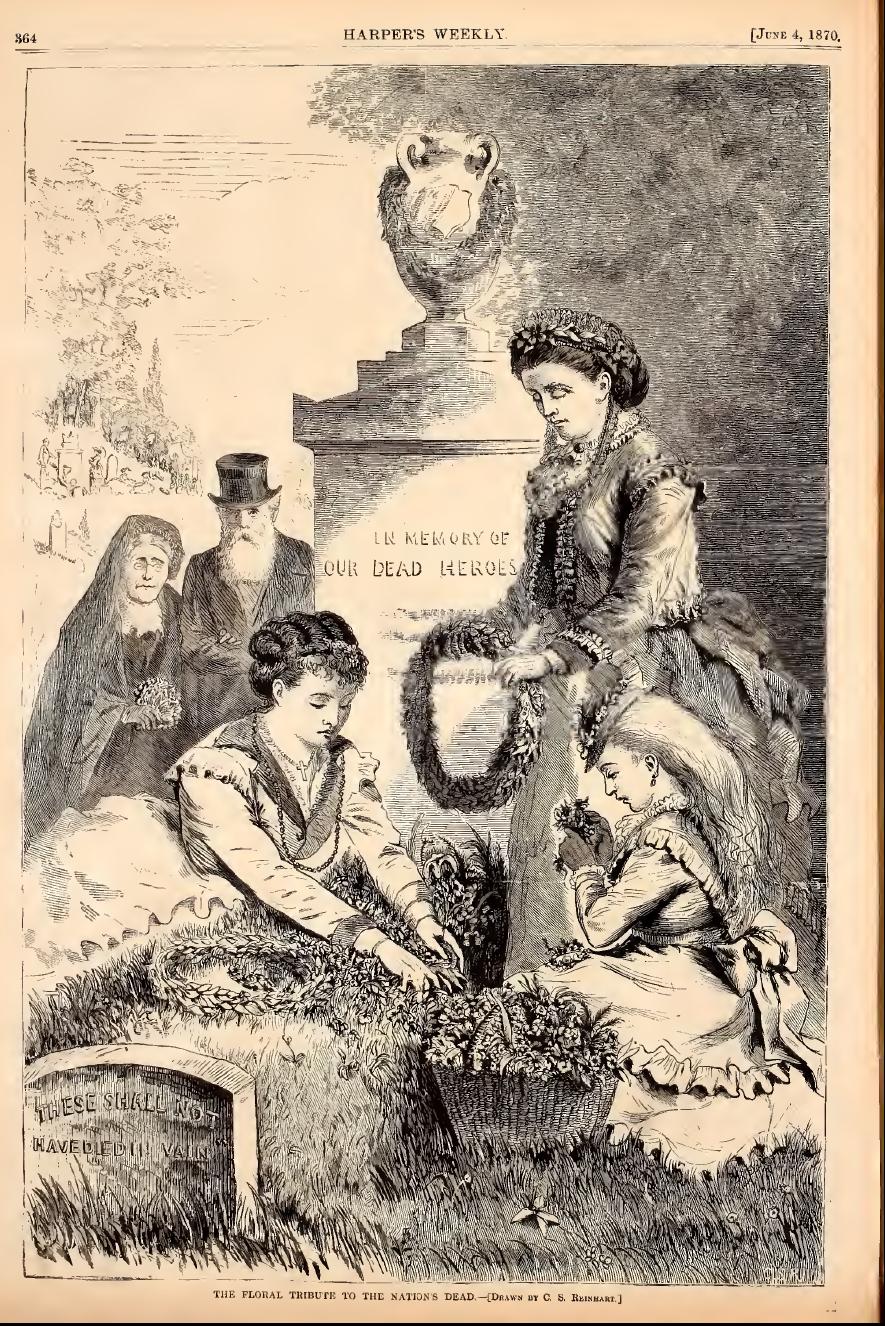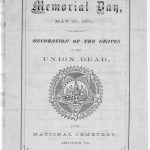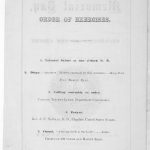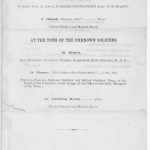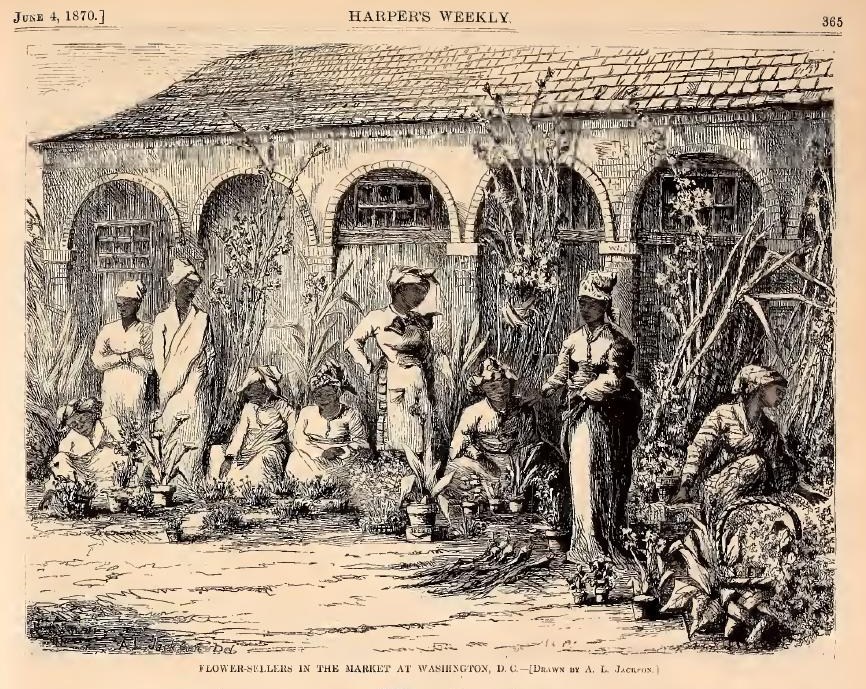From the May 31, 1870 issue of The New-York Times.
Except the day on which is celebrated the independence of these United States, there is no day that calls out the patriotic feelings of our people more than “Memorial Day.” The 30th of May has come to be a National holiday — not by any enactment of Congress, not by any enactment of Legislature, but by the general consent of the people. On this day, when the earth is robed in its most beautiful verdure — when everything bids the soul lift itself up to things superterrestrial — it has been well chosen that the nation should pay homage and reverence to the manes [names?] of those who bared their breasts to the battle’s front when treason sought to overthrow our national institutions, and discord sought to make of an hitherto united people a dissevered and divided nation. All over the Union yesterday was celebrated as a fit and appropriate occasion on which to testify the honor in which is held the memory of the heroic dead who,
“Fighting in freedom’s cause, bravely fell.”
The tradition of services at Arlington National Cemetery continued, including a song performed by the Marine band and a chorus of 500 at the Tomb of the Unknown Soldiers:
Services were also held at Antietam National Cemetery. In his long main oration Colonel Ephraim F. Anderson began by focusing on the common soldier as he commemorated the Union cause:
Ladies and Gentlemen :
We have come here to-day with evergreens and flowers to decorate the graves of our fallen heroes. The 30th of May, which has been designated as our “Memorial Day,” is indeed becoming a national anniversary — the saddest yet the sweetest of all the days we celebrate. These tender observances help to humanize our feelings and purify our patriotism. — Our annual pilgrimages to these sacred little mounds make our hearts better and inspire us with a purer love of country. While people everywhere, both civilized and barbarous, have fondly cherished the memory of their brave ones slain in battle, yet their tributes of sorrow and gratitude have been commemorative rather of their great national triumphs, or lavished upon their victorious chieftains alone. Monuments have been reared to the very heavens to point where battles were fought and won, or to mark where famous leaders fell, and pyramids have been erected for the sepulture of kings ; but the rank and file of armies have passed unnoticed as individuals, and have been allowed to commingle their dust in shallow, evenly covered ditches, in forgotten or unfrequented places.
We are not here to-day to gaze up toward the apex of some proud pillar, as it pierces the sky; nor are we come where our sentiment for the dead will be lost in admiration of the splendid mausoleum or costly cenotaph. Within these cemetery walls five thousand of our brave defenders lie slumbering, and we are come to this bivouac of our gallant dead, bringing with us the bloom and fragrance of early spring-time — beautiful flowers, delicate and tender as the emotions which they symbolize — beautiful flowers with which God’s love has made our earth smile — beautiful flowers to be arranged by fair hands over each humble yet honored grave. I know not whether the departed turn back to view the honors bestowed upon their remains, but if such be their wont, I imagine the spirits of those whose bones repose here are hovering about these memorial services; and these lovely flowers are only less grateful to them than the nation’s starry flag which they hallowed by their blood.
While this occasion is mainly in honor of the cause for which our soldiers gave up their lives, it at the same time engages the tenderest affections of our hearts, for we are sensible that those who sleep here are our sons and our brothers, and we perform, though imperfectly, the sweet offices which their dearer kindred would esteem their sacred privilege. In all times, it has been a fond desire of the human race to be buried, after death, among their kindred in the family graveyard, where surviving friends might often stray and bestow their tributes of affection. …
Our offerings to-day are for the Union Soldier, who sleeps among strangers far away from the family vault. But it is pleasing to know that, though the mother and sisters may never come to plant the white rose and train the myrtle, yet the Soldier boy’s grave is not neglected — with his life’s blood he purchased a fond mother and gentle sisters in every home defended by his valor, and they will come, by-times, to deck his modest tomb with choice flowers and moisten its verdure with grateful tears. …

